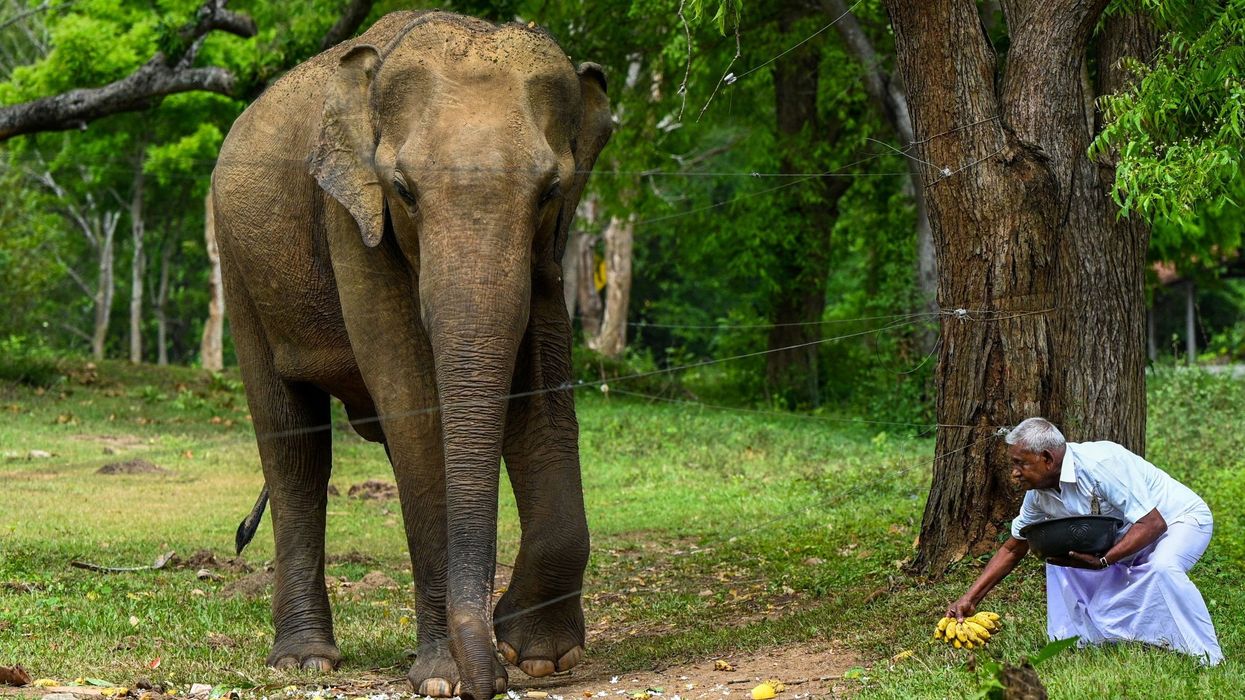Sri Lanka will more than double its anti-elephant electric fencing, a government minister said last Wednesday (19), with more than 200 animals and nearly 100 people killed in human-elephant conflict so far this year.
Elephants are revered as a Buddhist symbol in the country and carry caskets containing relics at temple pageants, but farmers are in constant conflict with the marauding animals raiding their crops.
Elephants are protected by Sri Lankan law as an endangered species and harming them can bring lengthy jail sentences, but there have been few prosecutions.
This year, 94 people have been killed in elephant attacks - a much higher rate than the 146 in the whole of 2022, which was itself the highest on record.
Elephants themselves are shot or poisoned by farmers - 238 of them up to July 14 according to official figures, an average of just over one per day.
Sri Lanka currently has 650 kilometres (400 miles) of electrified fencing to protect villages against elephants, but wildlife minister Pavithra Wanniarachchi said another 1,000 kilometres (621 miles) would be added.
The high-tension fencing shocks an elephant, but is not strong enough to kill it.
"We also need another 3,000 workers to man and maintain the new fences," Wanniarachchi told reporters in Colombo.
"This is one way to minimise the human-elephant conflict."
Increased conflict with wild elephants was partly due to farmers' encroachment on forest lands as well as infrastructure projects shrinking animal habitat, she added.
In May, angry villagers stormed a remote government office after a herd of up to 50 elephants ravaged farmers' fields near a wildlife reserve.
A 2011 survey showed Sri Lanka had 7,379 elephants living in the wild, including about 1,100 calves, compared with 12,000 elephants in 1900.




